How Google is driving up rents in Zurich
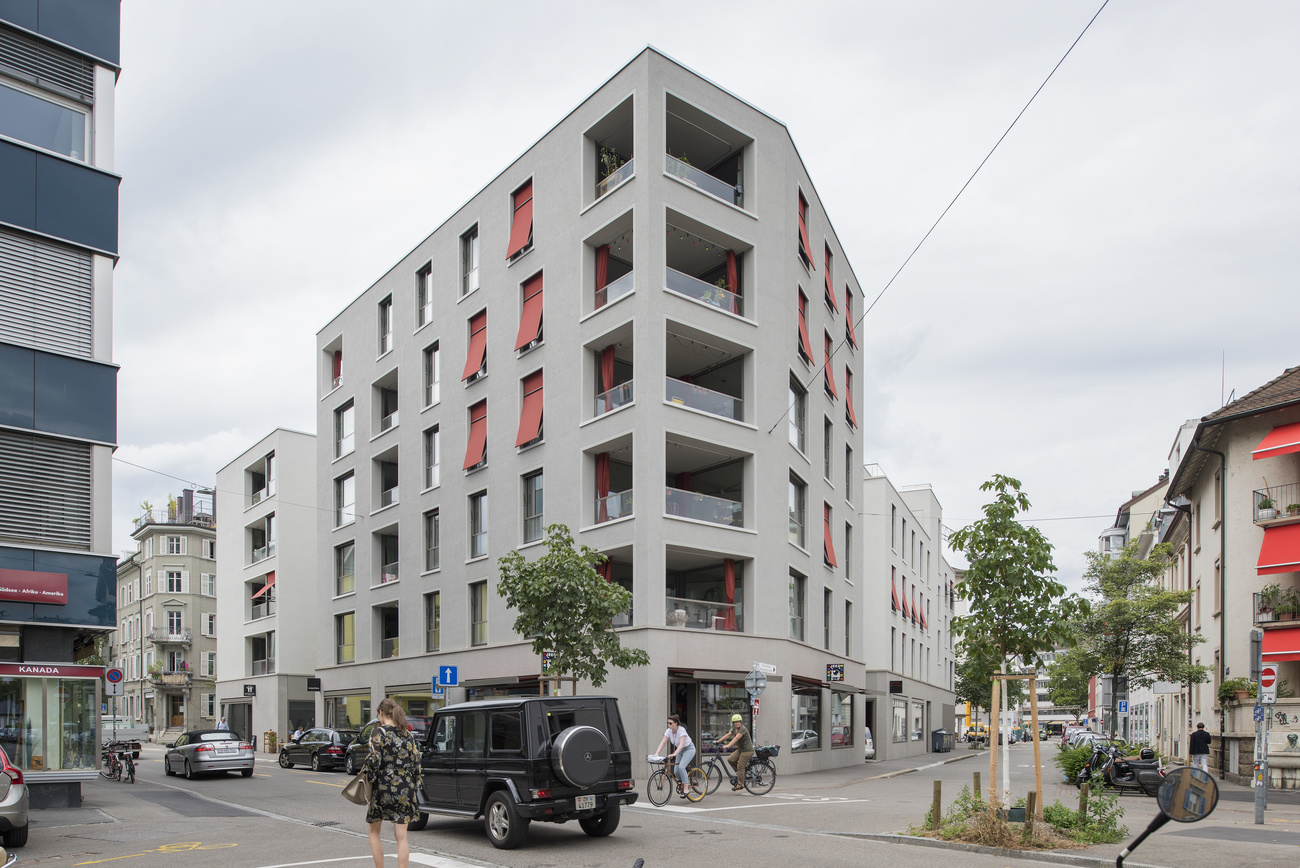
Rents for flats in Zurich, Switzerland’s business capital, are reaching stratospheric levels – even higher than in the rest of the country. One reason for this is Google’s international campus. Its employees earn huge salaries, and they are driving up rents.
Christophe*, a 40-year-old French-speaking entrepreneur living in Zurich, became the father of a baby girl a few months ago. He and his wife started looking for a flat for their family. “We went to look at a five-room apartment, which cost CHF5,500 ($6,000) a month,” he says. “We thought that at that price we’d be entitled to a private viewing. Not at all. There were 80 people queuing at the foot of the building.”
To say housing in Zurich is overpriced is an understatement. The boom encompasses every segment of the market. Katia*, who works in communications and is in her thirties, is looking for a flatshare. “For a room in shared accommodation, prices are as high as CHF2,000,” she says. “It’s mind-blowing.”
Mathias*, a 33-year-old creative artist, has just ended his search for a new home. “Lofts in the buildings on Europaallee, the new district next to the station, are on offer for up to CHF6,500,” he says. “Prices like that are not entirely surprising. There are around 5,000 Google employees in Zurich and they earn huge amounts of money.”
Constant influx
Mathias has put his finger on a factor in the accelerating gentrification of Switzerland’s largest city: the development of the largest Google research centre outside the United States. Its presence is fuelling a constant influx of highly qualified expatriates. The property market has adapted to their needs.

A glance at HomegateExternal link, a rental portal, shows that a large number of properties are aimed at single people with very high purchasing power, typically young people who are very tech-savvy.
Aside from Google, this type of skilled worker is employed by international law firms, insurers Swiss Re and Zurich and the accountancy firms PwC and EY. In District 4, home to nightclubs and bars but also prostitution and crime, a 12-square-metre furnished apartment is advertised for CHF2,100 a month. A 2.5-room penthouse is on offer for CHF4,275 a month. At the luxury end of the market, a 515-square-metre loft with indoor swimming pool in the heart of the city is seeking a tenant willing to pay CHF26,565 a month.
High level of housing renewal
The housing crisis is affecting all Swiss urban centres, as studies by Credit SuisseExternal link and RaiffeisenExternal link have shown. The causes: accelerating population growth and a delay in building projects following the Covid-19 pandemic. In addition, the size of households is shrinking while their number is increasing. There has been a noticeable increase in square metres per inhabitant in recent decades.
Where Zurich stands out is the widespread availability of midrange housing, mostly renovated or new, at prices ranging from CHF6,000 to CHF10,000 or more. According to a study published by the city of ZurichExternal link, rents have risen by 40% in 20 years. But calculated per square metre, the increase is less spectacular and remains in line with the national average for rental increases, says Claudia Naegeli, a spokeswoman for the Zurich city government.
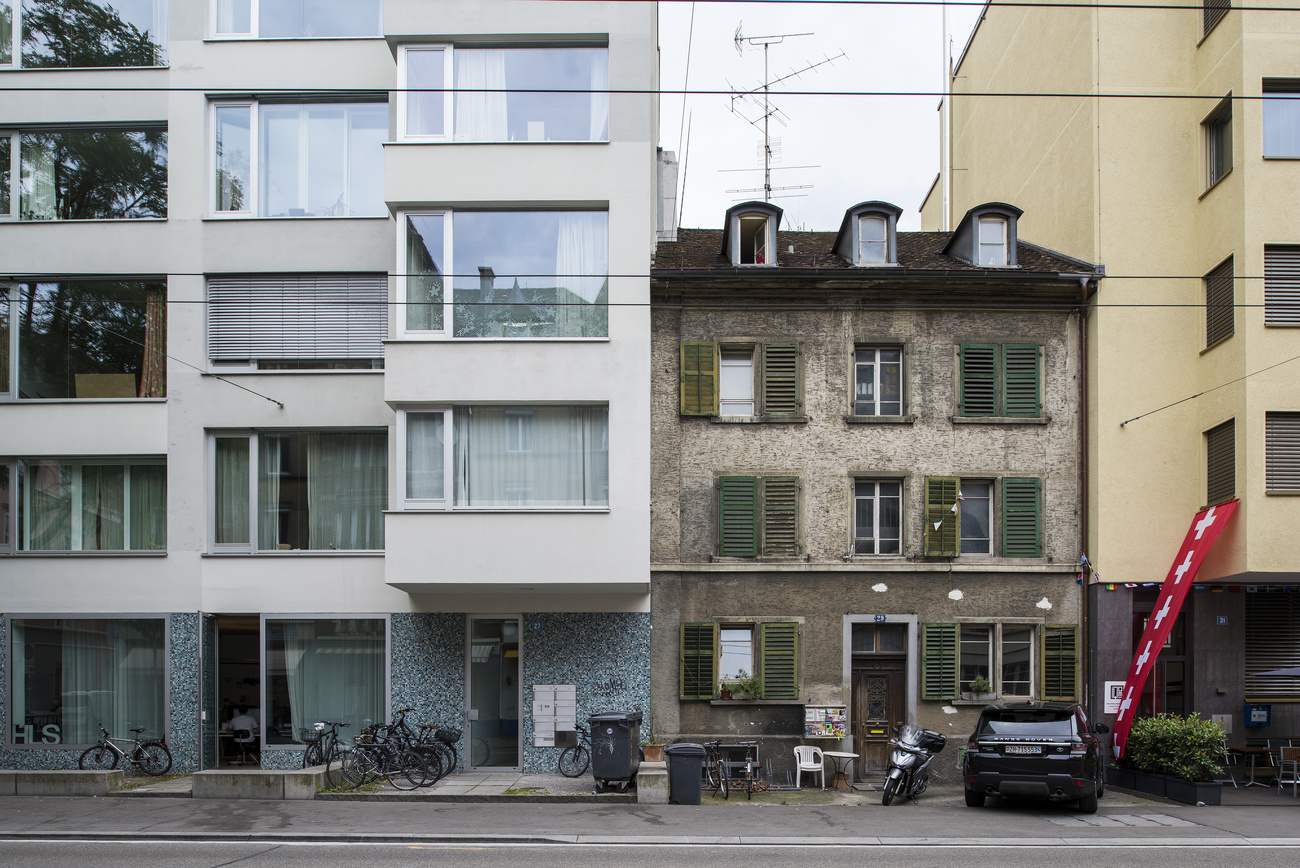
However, Zurich’s city centre is characterised by a high level of housing renewal, she says. “Nearly 14,000 older, rather cramped homes have been demolished and more than 40,000 flats, most of them larger, have been built.”
Kebab shops transformed into luxury lofts
The transformation is having a major impact on popular District 4, where prices have risen 60%. The main artery of District 4 is the famous Langstrasse. A haven for pimps, drug dealers and small-time crooks, this area – also popular with late-night revellers – is undergoing rapid change described by magazine RepublikExternal link as the “Google effect”.
In 2022, the US tech giant opened a second branch on Europaallee, the axis linking the red-light district to the main railway station. Before the end of this year, Google will move into a block at numbers 16 to 20 on Müllerstrasse in the same district. This new occupant is contributing to dramatic gentrification.

In the space of a few months, signs indicating that buildings are under investigation have proliferated on neighbouring properties housing kebab shops and seedy bars. A block away, rental residential buildings from the 1950s and 1960s have already been demolished to make way for luxury lofts. It’s a textbook example of a speculative spiral.
Highest incomes in Switzerland
A cornerstone of this development is the enormous income earned by a growing number of residents. The median gross salary in Zurich is CHF8,000 a monthExternal link, which means that half the population earns less and the other half earn more. This compares with a national median salary of CHF6,665External link, according to the Swiss Federal Statistical Office.
The first office that Google opened in Zurich in 2004 employed two people. Today, the company’s Swiss site is its largest development centre outside the United States.
Some 5,000 Zooglers from 85 countries work there on Google Maps, Google Search and YouTube. This complex was massively extended in 2007, with the opening of the first research centre on the site of a former brewery (Hürlimann ArealExternal link).
The second site opened six years ago, in the new Europaallee district adjacent to the main railway station. In explaining its development in the business capital to the pressExternal link, the management of Google Switzerland has cited excellent local framework conditions and the potential to recruit a highly qualified international workforce.
According to statistics from the city of Zurich, half of all salaries exceed CHF10,000 a month in the finance and insurance sectors, as well as in IT and communications. Employing some 5,000 Zooglers (Googlers living in Zurich), Google is engaged in fierce competition for the best brains with its compatriots Meta (formerly Facebook), Disney and Amazon, all of which have a presence in the region.
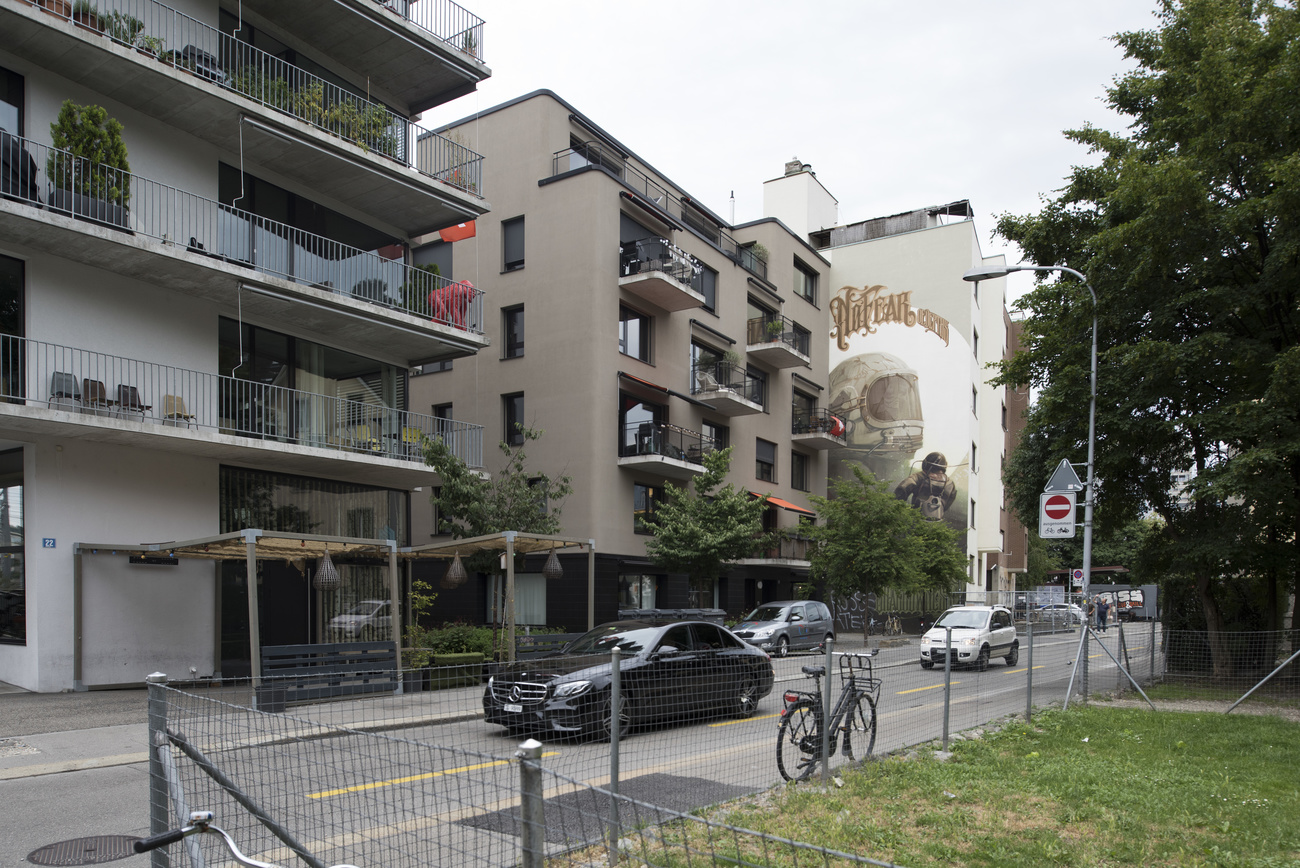
This battle is propelling salaries into the stratosphere. GlassdoorExternal link, a website where employees rate companies, shows that a one-year internship at Google can pay up to CHF100,000, while a developer can earn around CHF350,000External link a year. Google Zurich declined to comment on these figures and left most of our questions unanswered.
Middle classes driven out of the centre
The city of Zurich says it’s aware of the “risk” that very high housing prices will drive the middle classes out of the city centre. “We’re keeping a close eye on vulnerable population groups – that’s to say people on low incomes – in order to minimise this process of eviction as far as possible,” Naegeli says.
A number of measures are already in place. The authorities are taking public housing off the market and letting it at cost price. Foundations are providing housing for the elderly and large families.
The city also encourages cooperative housing by making land available at low cost. However, in the face of very high demand – the vacancy rate in the city of Zurich is only 0.07% – opportunities for accommodation at a reasonable price are minimal.
“Despite enormous effort, maintaining or increasing the proportion of public housing remains a major challenge,” Naegeli says.
Berlin’s counterexample
Walter Angst, co-director of the Zurich tenants’ associationExternal link and a representative of the Alternative Left in the city assembly, is alarmed. “We cannot continue as we are today,” he says. “The federal government and the cantons must give the cities the means to curb spiralling rents. At a federal level, we need effective tenancy law to guarantee genuine protection against excessive profits. Municipalities should have the power to guarantee affordable housing.”
But the factor exacerbating the situation in Zurich is not unavoidable. Berlin has proven this. In 2019 Google decided against openingExternal link a campus in the young, hip district of Kreuzberg, which had already fallen prey to property speculation.
This decision followed two years of protests from the local population. Unlike Madrid, Warsaw or Seoul, the German capital put the fate of its tenants ahead of the economic growth that a Google campus would bring.
*Names have been changed.
Edited by Samuel Jaberg. Translated from French by Catherine Hickley

In compliance with the JTI standards
More: SWI swissinfo.ch certified by the Journalism Trust Initiative









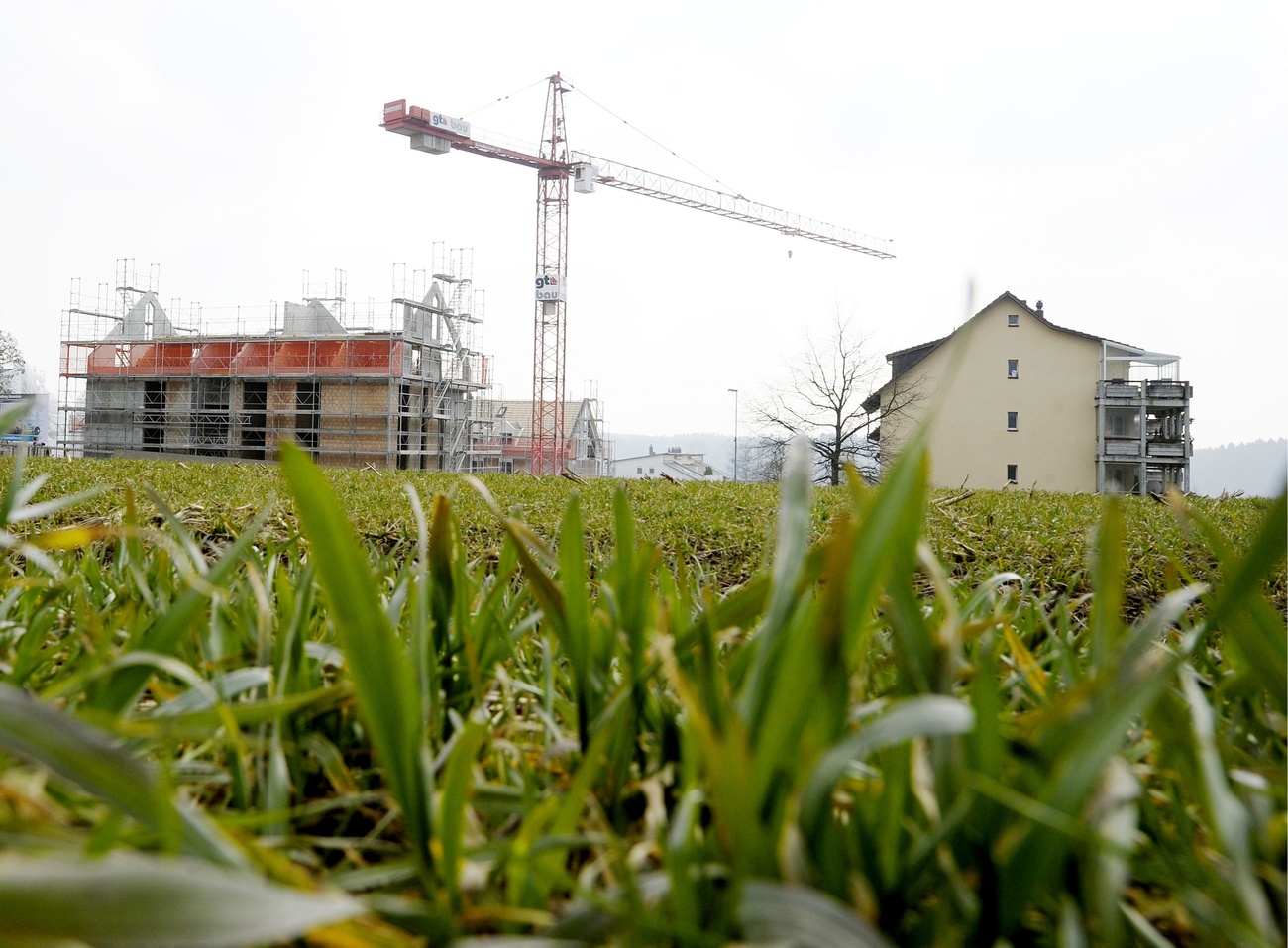
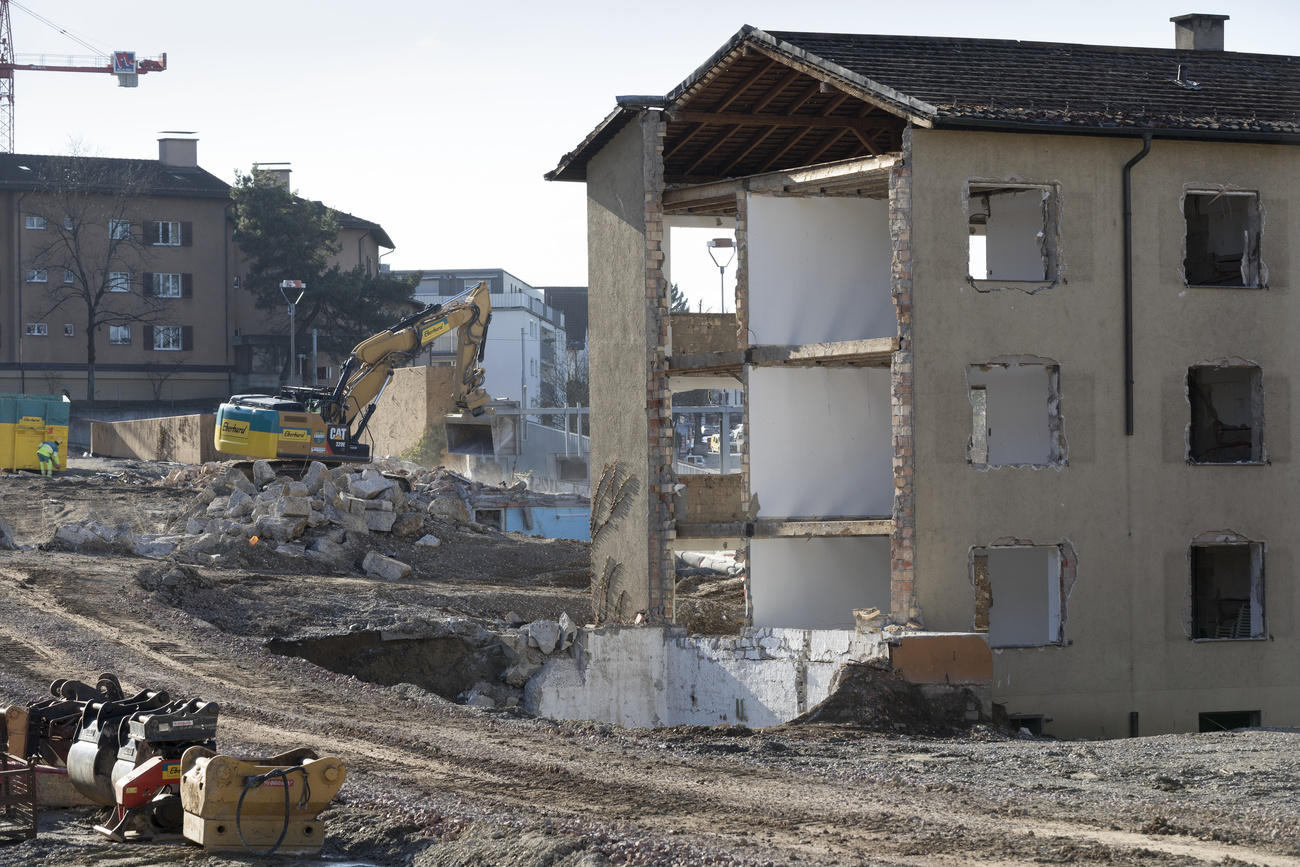
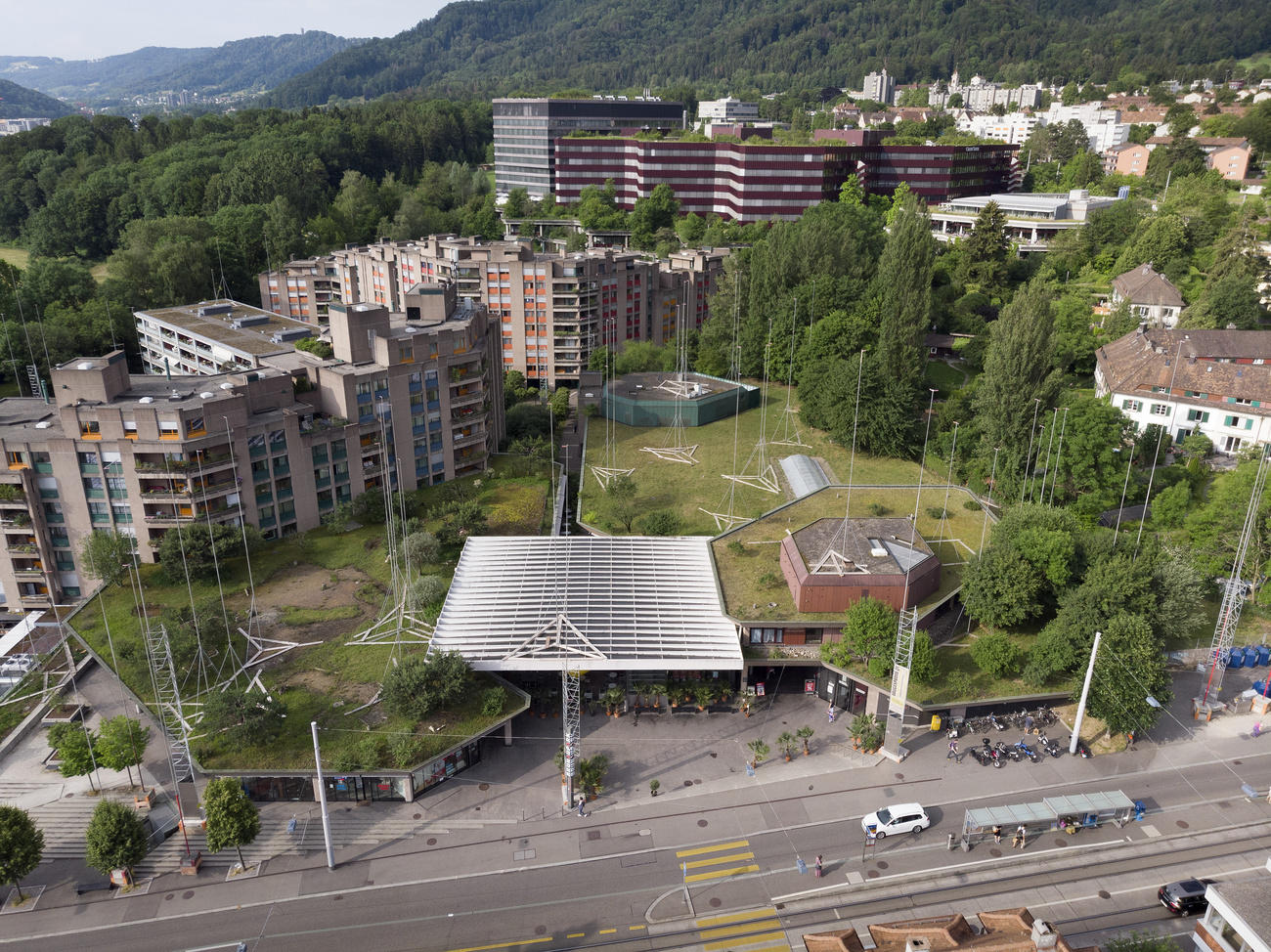
You can find an overview of ongoing debates with our journalists here . Please join us!
If you want to start a conversation about a topic raised in this article or want to report factual errors, email us at english@swissinfo.ch.